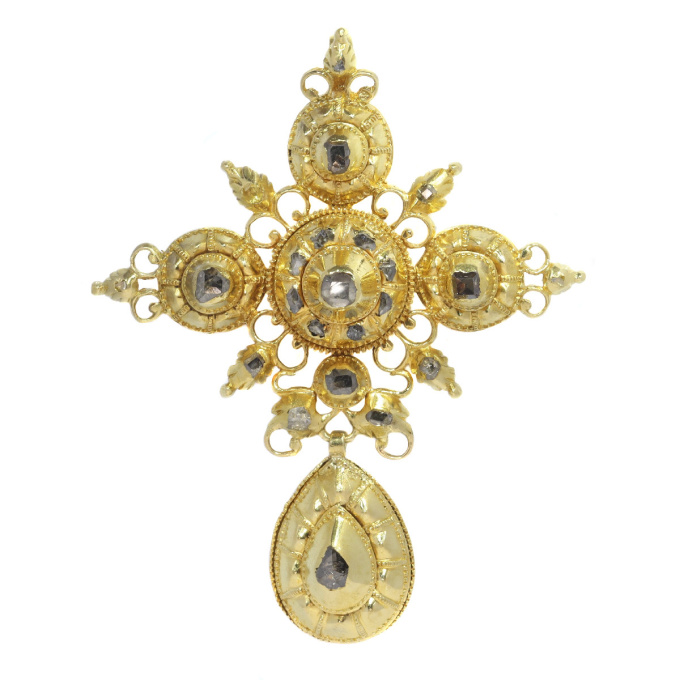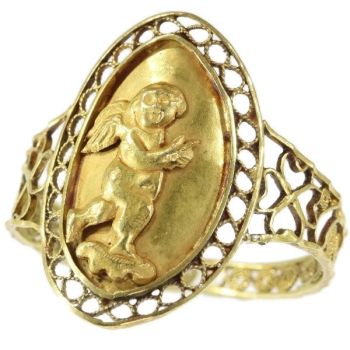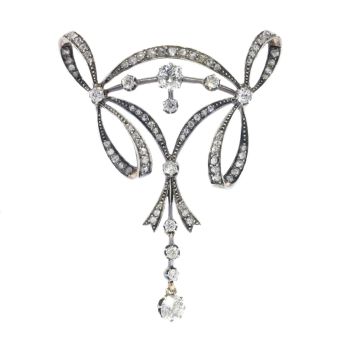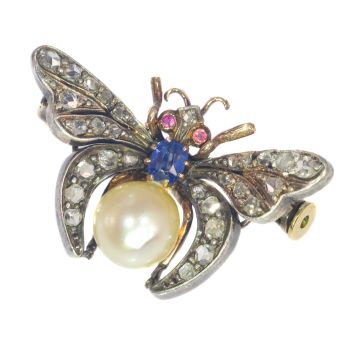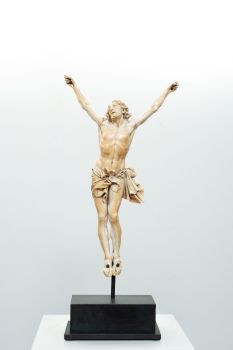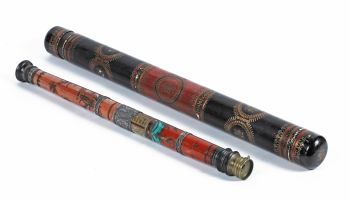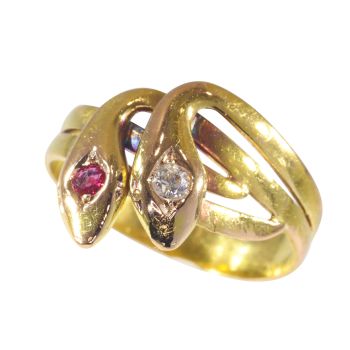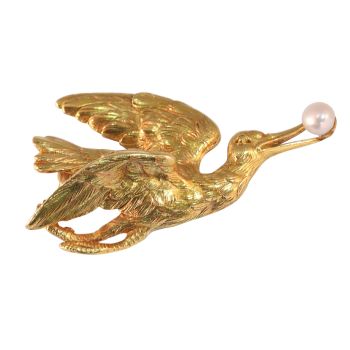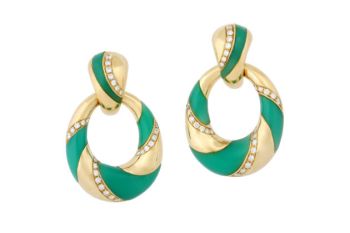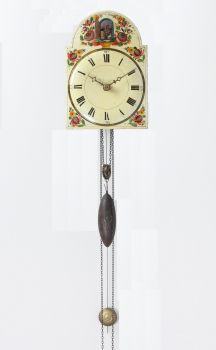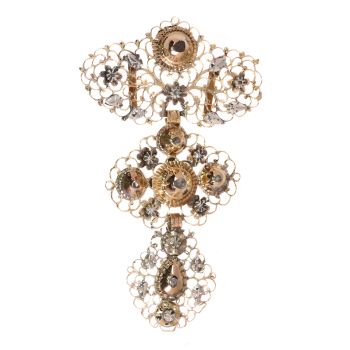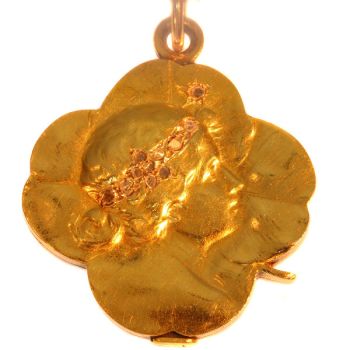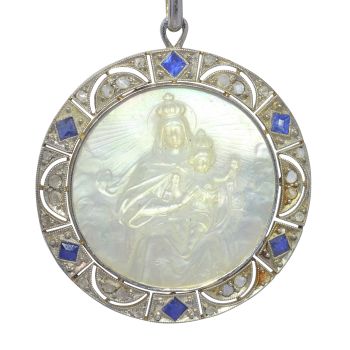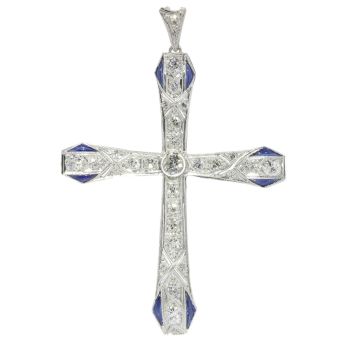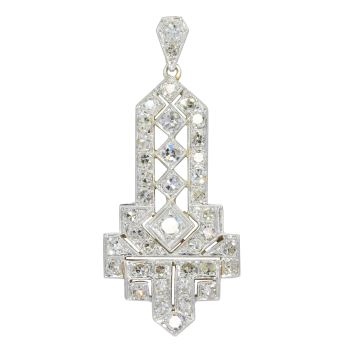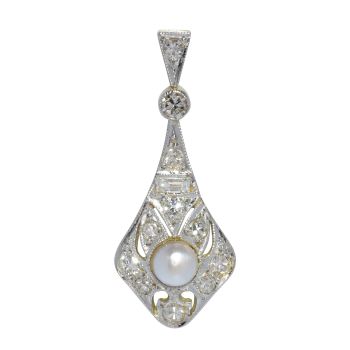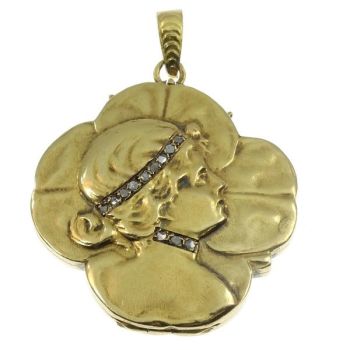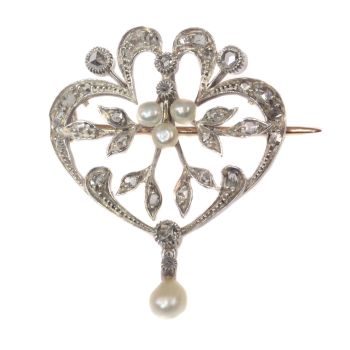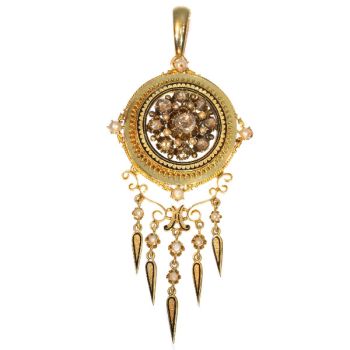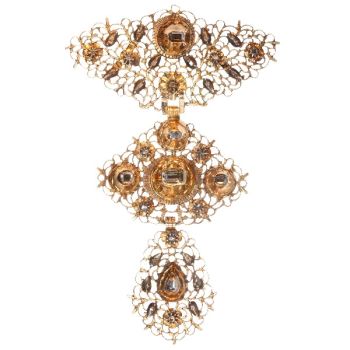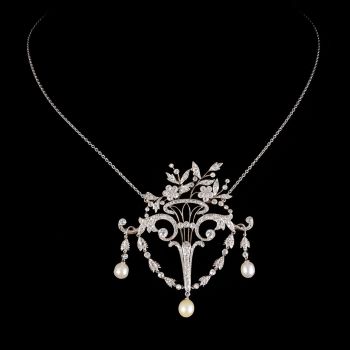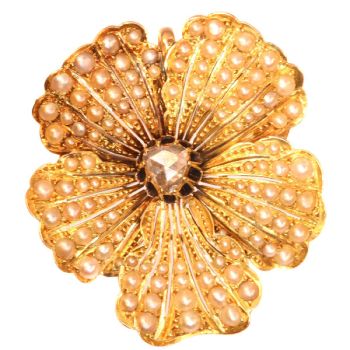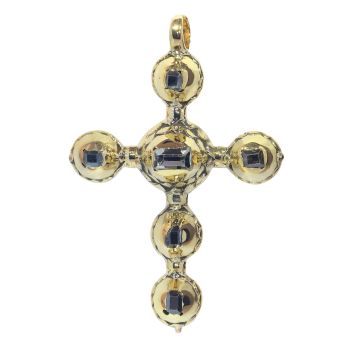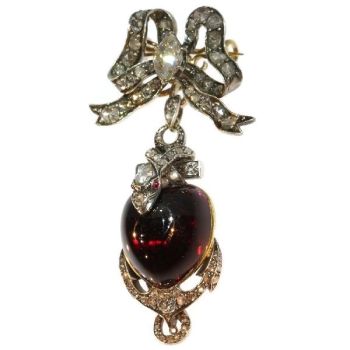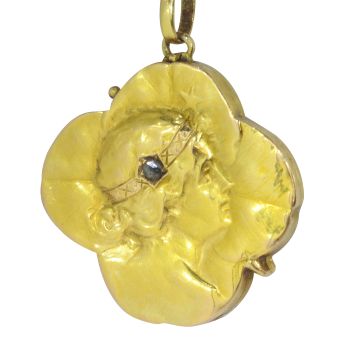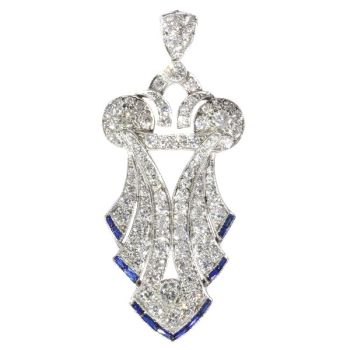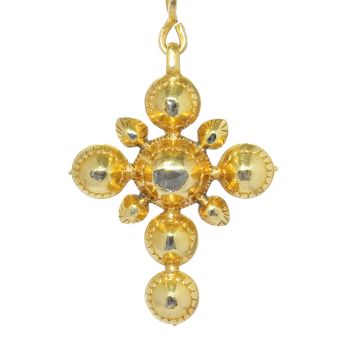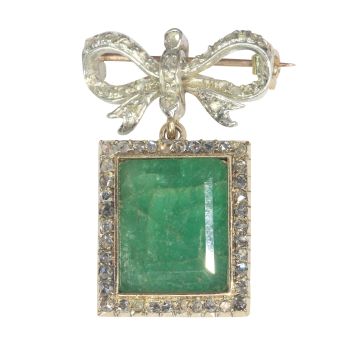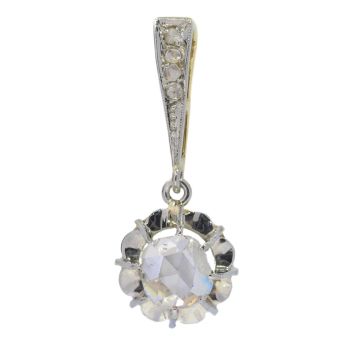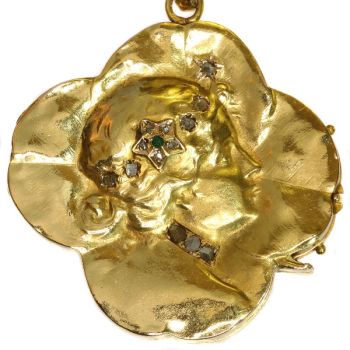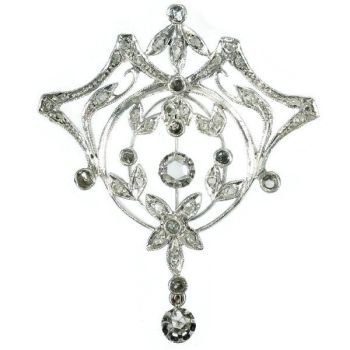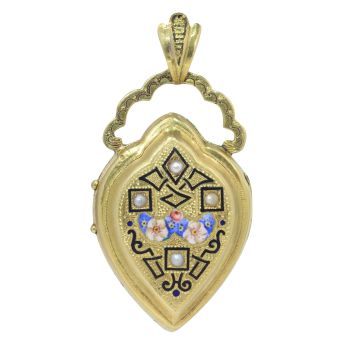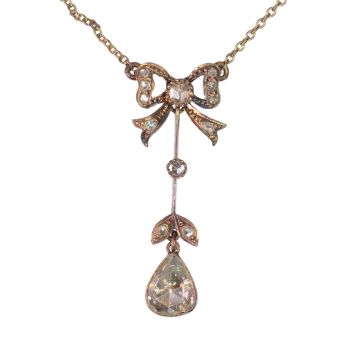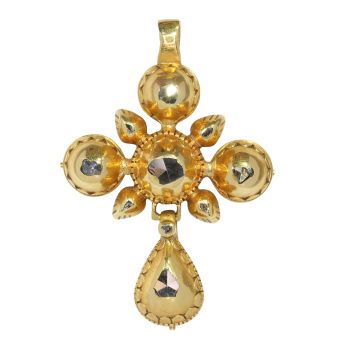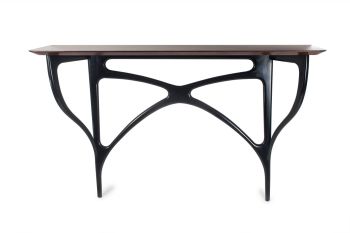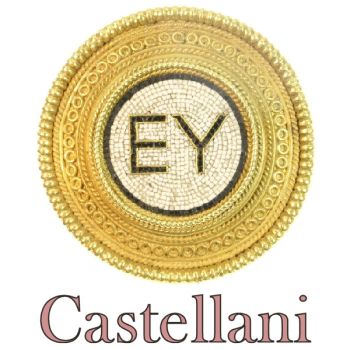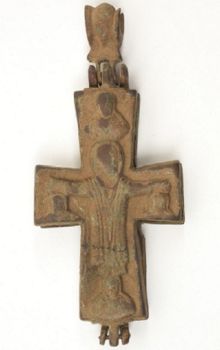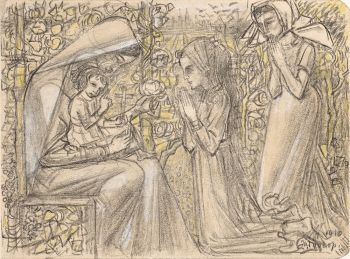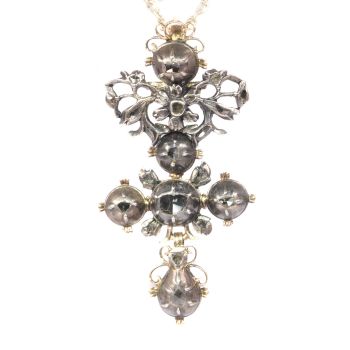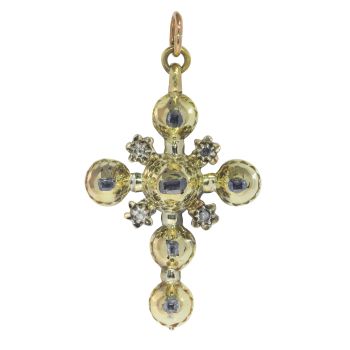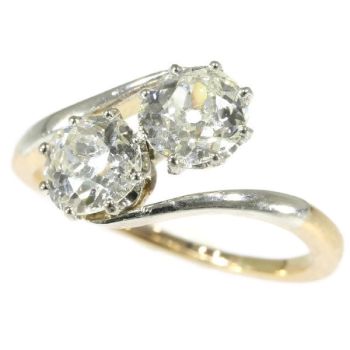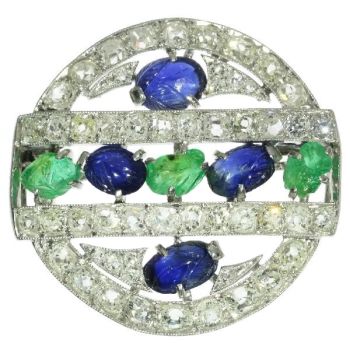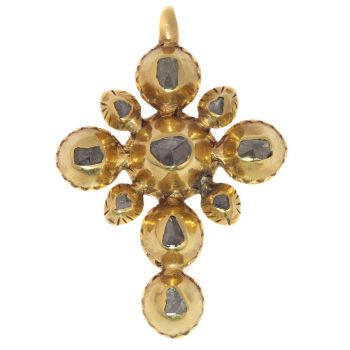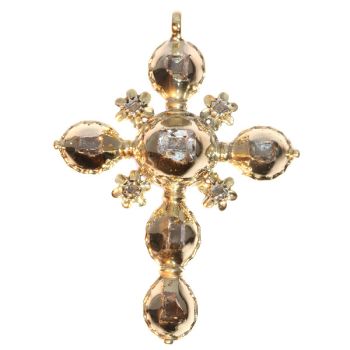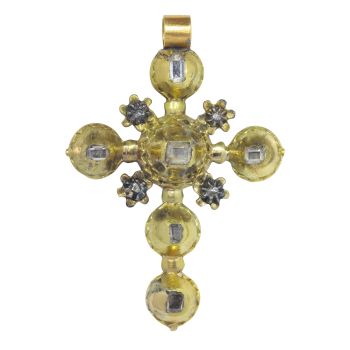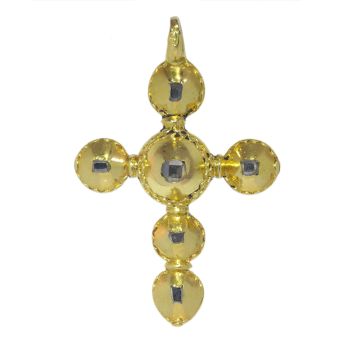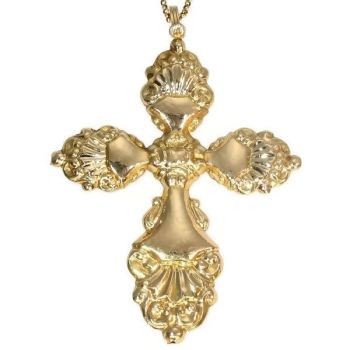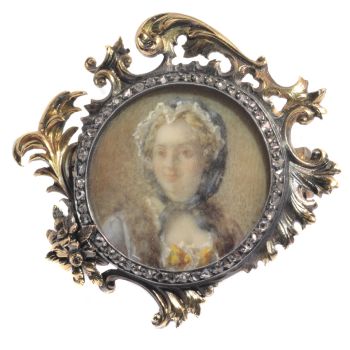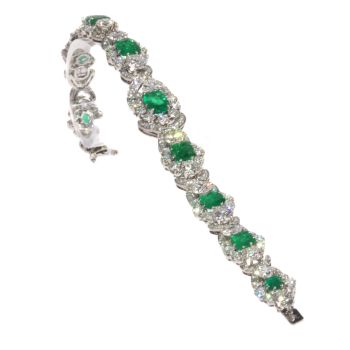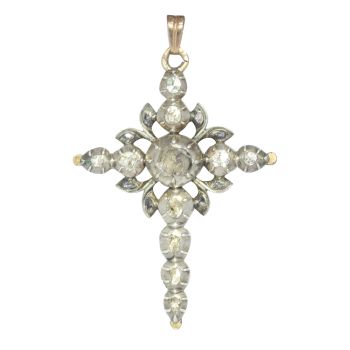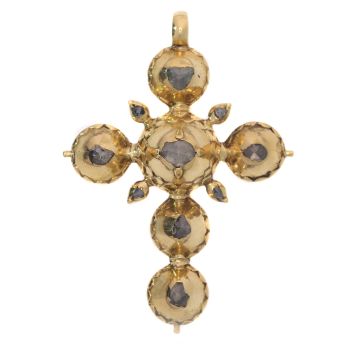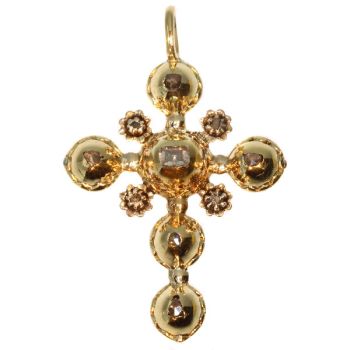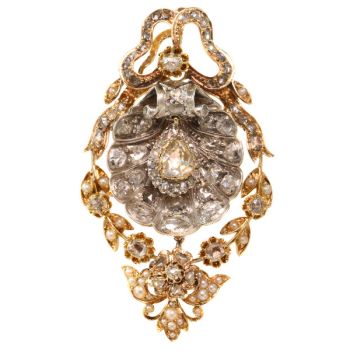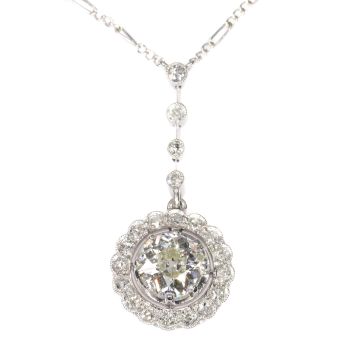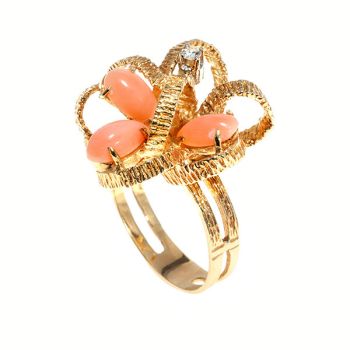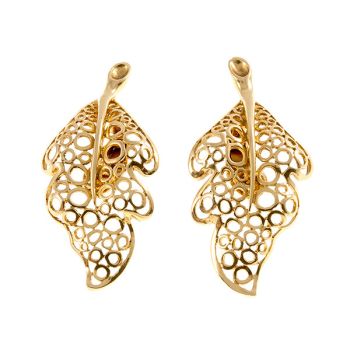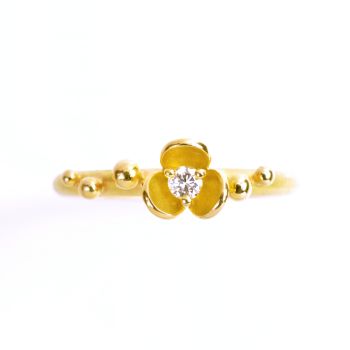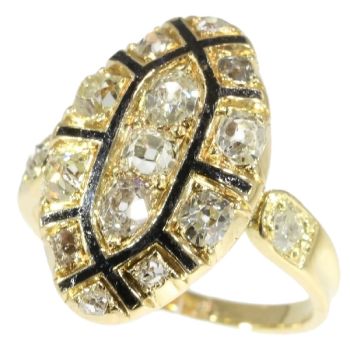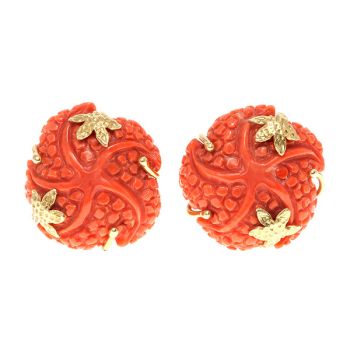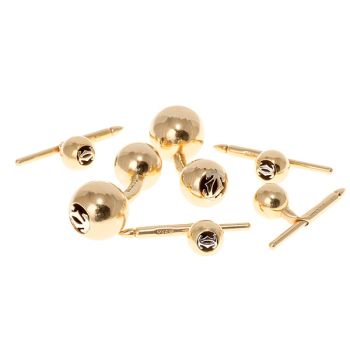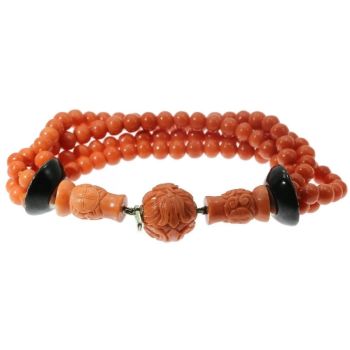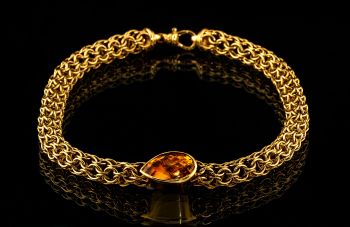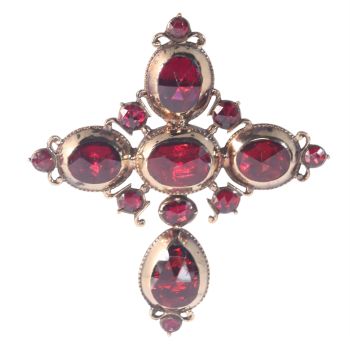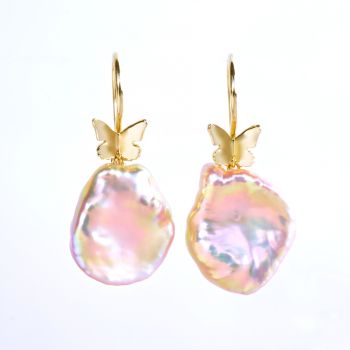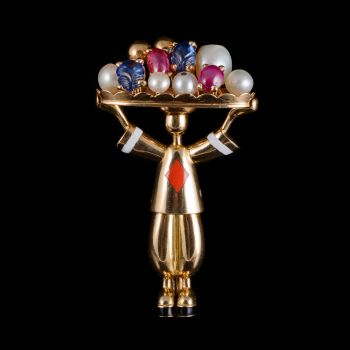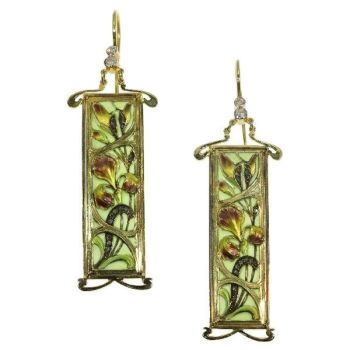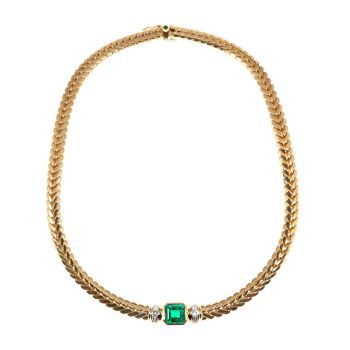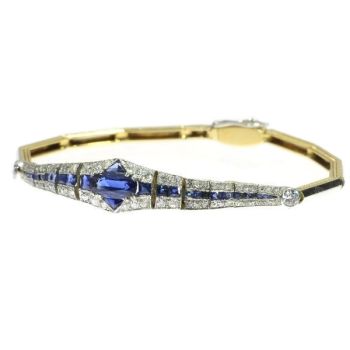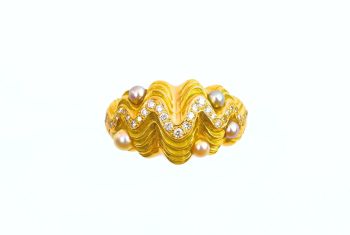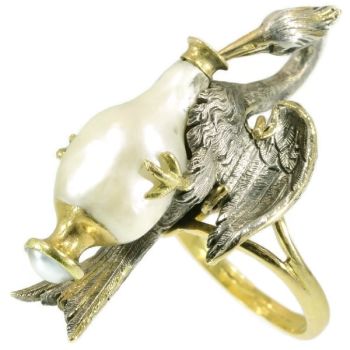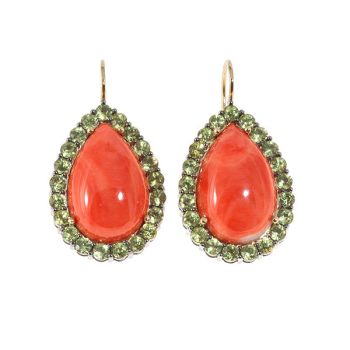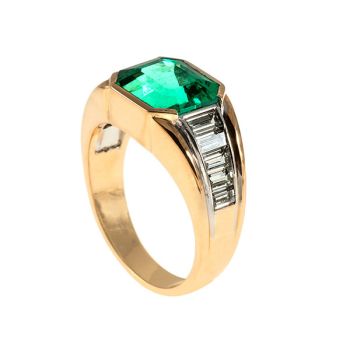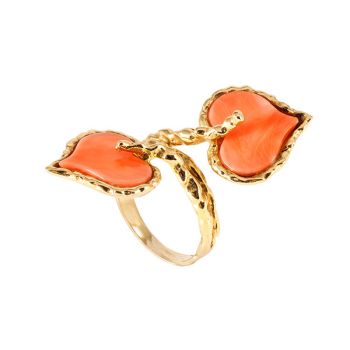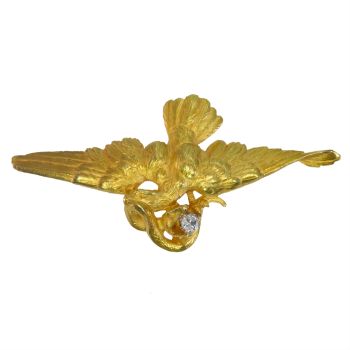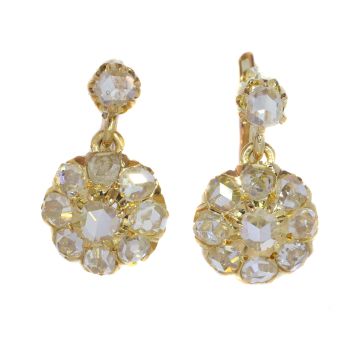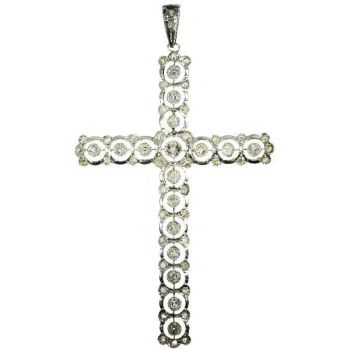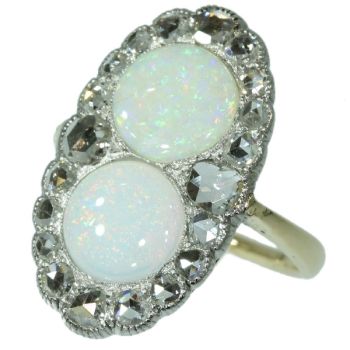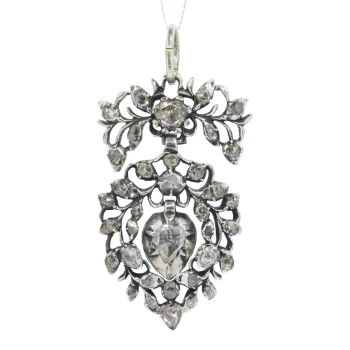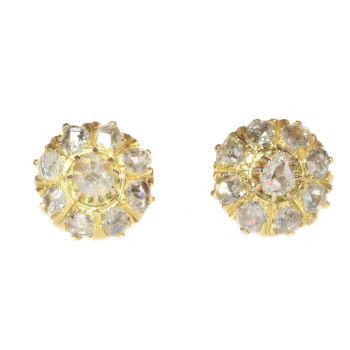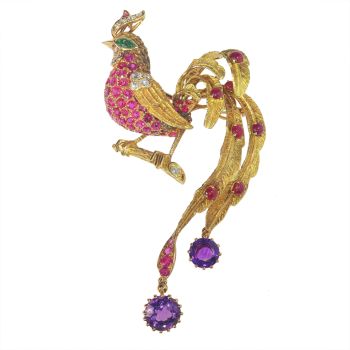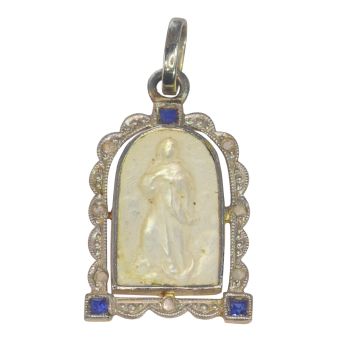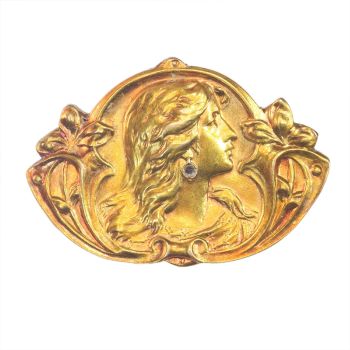Cruz de diamante e ouro barroco genuíno do século 17 1650
Artista Desconocido
Oro amarilloOro
€ 14.500
Adin Fine Antique Jewellery
- Sobre la obra de arte
Antique jewelry object group: pendant
Condition: very good condition
- (more info on our condition scale)
Country of origin: Although it does not carry any legible control marks we believe this to be of either Spanish or Portuguese origin.
Style: Baroque - Baroque is an artistic style prevalent from the late 16th century to the early 18th century in Europe. It is most often defined as "the dominant style of art in Europe between the Mannerist and Rococo eras, a style characterized by dynamicmovement, overt emotion and self-confident rhetoric".
- See also: Baroqueor more info on styles
Style specifics: Baroque is a style in art and decoration that developed shortly before 1600 and remained current in Europe until the emergence of the Rococo style c.1730. It was started in Italy, and spread to Germany, Austria, the Low Countries, and Spain andPortugal, with only a somewhat severely classical version being popular in France under Louis XIV. The style was a development of the Renaissance style and is characterized by lively, curved, and exuberant forms, by vigorous movement, and by richornament, based on classical sources, being symmetrical as distinguished from the asymmetry of the following Rococo style.
Period: ca. 1650
- (events & facts of this era, poetry of this era, fashion of this era)
Source of inspiration: Christianity
Theme: Cross - The cross is one of the most ancient human symbols, and is used by many religions, such as Christianity. It is frequently a representation of the division of the world into four elements (or cardinal points), or alternately as the union of theconcepts of divinity, the vertical line, and the world, the horizontal line. (from: Wikipedia)
Material: at least 18K yellow gold but likely to be of a higher carat alloy (touchstone tested)
- (more info on precious metals)
Technique: The rose cuts are set on foil. This is a special technique that was used to bring the lustre of the diamonds to its best quality.
Diamond(s): 23 table cut rose cut diamonds. We do not have the weight of the diamonds which is normal in our trade when it comes to rose cuts.
- All diamonds we offer are screened by the IJGC - lab (www.ijgc-worldwide.com) for whether they are natural or synthetic, and all diamonds in this jewel are 100% guaranteed to be natural.
Birthstones: Diamond is the birthstone (or month stone) for April.
- (more info on birthstones)
Hallmarks: No trace.
- (more info on hallmarks)
Dimensions: Height approx. 5,75 cm (2,26 inch) - See picture with a ruler in cm and inches
Weight: 16,30 gram (10,48 dwt)
Adin Reference Nº: 07162-0181
Copyright photography: Adin, fine antique jewellery
crosses, christian jewelry, religious all, yellow gold jewelry, jewelry with rose cut diamonds, latest acquisitions,
antique jewelry, estate jewelry, vintage jewelry or modern jewelry
Jewelry with birthstones (or month stones) for:
January - February - March - April - May - June - July
August - September - October - November or December.
Additional information:
jewelry glossary - wall of fame - visit us in Antwerp - subscribe to our mailinglist.
What is antique jewelry? - What is estate jewelry? - What is vintage jewelry?
- Sobre el artista
Puede suceder que un artista o creador sea desconocido.
Algunas obras no deben determinarse por quién está hecho o por (un grupo de) artesanos. Algunos ejemplos son estatuas de la Antigüedad, muebles, espejos o firmas que no son claras o legibles, pero también algunas obras no están firmadas en absoluto.
También puedes encontrar la siguiente descripción:
•"Atribuido a …." En su opinión, probablemente una obra del artista, al menos en parte.
•“Estudio de….” o “Taller de” En su opinión, una obra ejecutada en el estudio o taller del artista, posiblemente bajo su supervisión
•“Círculo de…” En su opinión, una obra del período del artista que muestra su influencia, estrechamente asociado con el artista pero no necesariamente su alumno.
•"Estilo de …." o “Seguidor de…”. En su opinión, una obra ejecutada al estilo del artista pero no necesariamente por un alumno; puede ser contemporáneo o casi contemporáneo
•"Manera de …." En su opinión una obra al estilo del artista pero de fecha posterior
•"Después …." En su opinión, una copia (de cualquier fecha) de una obra del artista
•“Firmado…”, “Fechado…” o “Inscrito” En su opinión, la obra ha sido firmada/fechada/inscrita por el artista. La adición de un signo de interrogación indica un elemento de duda.
•“Con firma…”, “Con fecha…”, “Con inscripción…” o “Lleva firma/fecha/inscripción” en su opinión la firma/fecha/inscripción ha sido añadida por alguien que no es el artista
¿Está interesado en comprar esta obra de arte?
Artwork details
Related artworks
- 1 - 4 / 12
Fontana
Broche-colgante de canasta de flores1900 - 1905
Precio a consultarAns Hemke-Kuilboer Juwelier & Antiquair
1 - 4 / 24- 1 - 4 / 24
- 1 - 4 / 24
- 1 - 4 / 12

